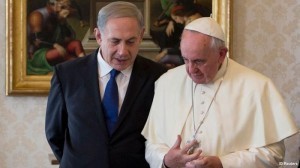C. Aaron Russell's Blog, page 4
June 20, 2014
Your Faith Might Cost You Your Next Job
How one experiment with 9,600 résumés showed that religious discrimination is alive and well.
Bradley R. E. Wright (Christianity Today)
 As a Christian and social researcher, I have heard many stories over the years of religious discrimination in the workplace. Some are compelling and troubling, others are trivial and frivolous. And it seems like the workplace climate may be getting worse: the Equal Employment Opportunity Commission (EEOC) considered 3,721 religious discrimination complaints in 2013, up from 1,709 in 1997.
As a Christian and social researcher, I have heard many stories over the years of religious discrimination in the workplace. Some are compelling and troubling, others are trivial and frivolous. And it seems like the workplace climate may be getting worse: the Equal Employment Opportunity Commission (EEOC) considered 3,721 religious discrimination complaints in 2013, up from 1,709 in 1997.
But the EEOC drops about four in ten of those complaints—a figure that’s remarkably stable across religions. One big reason is that discrimination can be surprisingly difficult to prove. If a member of a social group is treated badly, is it because of their social group? Was he laid off because his boss was tired of giving him Sundays off? Was she reassigned because customers were wary of being served by a Muslim in a headscarf? Were they discriminated against, or do bad things just happen?
I started wondering: How bad is religious discrimination in America, really? Horror stories abound. But are they examples of a systemic problem, or a few bad actors? Do some groups have it worse than others?
My colleague Michael Wallace and I conducted a large-scale field study to test for religious discrimination in one area of public life: the job application process. We found that not only is religious discrimination alive and well, it is so strong that simply adding one word to a résumé—a reference to a particular religion—reduced employer callbacks by almost 40 percent.
What 9600 resumés reveal…(continure reading at Christianity Today)
June 17, 2014
Abandoning Buddha for a better way
Beyond Buddha to Beloved
How I became the first-ever Christian in my family lineage.
Alexander Chu (Christianity Today)
 Click … click … click. I could hear my parents in the other room using a handheld tally counter as they recited mantras. In one day in our home, the counter might reach 1,000 clicks, or 2 hours of meditation. They chanted in order to clear their minds and purify themselves, seeking perfect enlightenment in the way of the Buddha.
Click … click … click. I could hear my parents in the other room using a handheld tally counter as they recited mantras. In one day in our home, the counter might reach 1,000 clicks, or 2 hours of meditation. They chanted in order to clear their minds and purify themselves, seeking perfect enlightenment in the way of the Buddha.
Each morning, I would wake up to the smell of incense burning. Oranges and pineapple cake were offered in front of Buddha statues in a room designated for meditation. Our home was like a temple. On each wall hung a Buddha portrait, totaling more than 30 deities throughout the house. A statue of the Grand Master, revered as a living Buddha, stood at the center of our home. My parents spoke often about discipline, wisdom, and training the mind according to the Four Noble Truths…
In the mid-1990s, I arrived at the University of Illinois at Urbana–Champaign (UIUC) with eyes wide open, eager to soak in all campus life had to offer…My dorm was full of fervent Christians: the InterVarsity Christian Fellowship (IVCF) students shared a bond with each other and seemed to radiate love. They were the first Asian American Christians I had ever met. They cared about things that were important to me—like living with purpose and having compassion for a cause beyond themselves. Living with them, I began to realize that the Buddhism of my upbringing was not in my heart…
Before I could place faith in Jesus, I needed to know there was a rational basis for Christianity’s foundational truths. Early that summer, I attended Chapter Focus Week (a retreat sponsored by IVCF), where I took an apologetics track. I heard well-founded explanations of the inspiration of Scripture, the problem of evil, and the uniqueness of the gospel. After the doctrines were satisfactorily defended, my gig leader recommended that I focus on the person of Jesus, so as not to let my endless philosophical queries distract me from the main character of Scripture. Jesus’ display of justice and compassion from the cross made perfect sense, and my reservations dissipated. I found that, contrary to the media’s portrayal of it as narrow, crazy, and judgmental, Christianity was the most intellectually stimulating worldview I had ever encountered…(read full story at Christianity Today)
June 11, 2014
Iraq unravelling: Jihadists take second city, Mosul
Islamist Siege of Iraq City ‘Disaster’ for Mideast
By Heather Sells
CBN News Reporter
 In a major defeat for Iraq’s government and a victory for Islamic insurgents, al Qaeda overran Iraq’s second largest city of Mosul Tuesday as overwhelmed security forces collapsed and deserted their posts.
In a major defeat for Iraq’s government and a victory for Islamic insurgents, al Qaeda overran Iraq’s second largest city of Mosul Tuesday as overwhelmed security forces collapsed and deserted their posts.
“They abandoned their arms, ammunition and armored vehicles, and their positions, leaving them behind to terrorists. They even left Mosul airport and some planes,” parliament speaker Osama al-Nujaifi, a Sunni from Mosul, said in a televised address.
Iraq Prime Minister Nouri al-Maliki is now calling for a state of emergency and is asking the United States for help. Al-Nujaifi called the incident a disaster for the entire region…(continue reading at CBN News)
In related story: Syria says ready to help Iraq fight jihadist ‘terror’(Yahoo News)
June 6, 2014
Boko Haram terror continues in Nigeria, kill hundreds
Wearing disguise, Boko Haram slaughters hundreds
By HARUNA UMAR (AP)
 MAIDUGURI, Nigeria (AP) — When men wearing military fatigues and carrying weapons showed up in pickup trucks, villagers thought Nigerian soldiers had finally come to protect them from Boko Haram.
MAIDUGURI, Nigeria (AP) — When men wearing military fatigues and carrying weapons showed up in pickup trucks, villagers thought Nigerian soldiers had finally come to protect them from Boko Haram.
But it was a disguise. The gunmen rounded up everyone in the village center and then started shooting.
Altogether, Boko Haram militants slaughtered hundreds of people in three villages in the far northeast corner of Nigeria, witnesses said Thursday, describing the latest attack by the Islamic extremist group that drew international attention for the kidnapping of more than 300 schoolgirls.
A community leader who witnessed the killings on Monday said residents had pleaded for the military to send soldiers to protect the area after they heard that militants were about to attack.
The militants arrived in Toyota HiLux pickup trucks — commonly used by the military — and told the civilians they were soldiers and that they had come “to protect you all,” the same tactic used by the group when they kidnapped the girls from a school in the town of Chibok on April 15…(continue reading at Yahoo News)
June 5, 2014
Taliban Releases Video of Bergdahl Prisoner Swap
By George Thomas
CBN News Sr. Reporter
 The Taliban has released a video showing the moment Army Sgt. Bowe Bergdahl was handed over to U.S. Special Forces in Afghanistan in exchange for five Taliban fighters.
The Taliban has released a video showing the moment Army Sgt. Bowe Bergdahl was handed over to U.S. Special Forces in Afghanistan in exchange for five Taliban fighters.
The footage shows a clean shaven Bergdahl, dressed in Afghan clothes, sitting in the back of a pick-up truck. Moments later, a Black Hawk helicopter lands and he’s handed over to the U.S. military.
The swap is made as dozens of Taliban fighters, armed with AK-47s and rocket propelled grenades, watch on a nearby hillside…(continue reading at CBN News)
Related article from Men of Mind, Last American POW: Tragedy or Traitor?
May 30, 2014
An American’s Experience with Islamic Apostasy
Editor’s note: The following was written for RaymondIbrahim.com by an anonymous American teacher living in the Muslim world
 At a recent dinner party, the death sentence of Meriam Yahia Ibrahim for the crime of apostasy by a Sudanese Islamic court came up as a topic of discussion. Not surprisingly, the progressive elements of the group did their best to defend Islam, claiming that her sentence to die by hanging was handed down by religious fanatics (not Muslim fanatics) who don’t understand the peaceful nature of Islam.
At a recent dinner party, the death sentence of Meriam Yahia Ibrahim for the crime of apostasy by a Sudanese Islamic court came up as a topic of discussion. Not surprisingly, the progressive elements of the group did their best to defend Islam, claiming that her sentence to die by hanging was handed down by religious fanatics (not Muslim fanatics) who don’t understand the peaceful nature of Islam.
With my wife by my side, I firmly disagreed with them, stating that my three years’ experience working in the Middle East has taught me that Meriam’s hanging sentence fits perfectly well within the Islamic culture. To further my point, I mentioned a past interaction I had with a group of Sudanese Muslims who wanted to kill my wife for leaving Islam.
This event occurred a few years ago while I was working as an ESL instructor in a Saudi Arabian University. Many of my colleagues were Sudanese Muslims and my first impression of them was very positive. I admired them because they were hardworking and forward looking. They were in Saudi Arabia to earn enough money to either start a family, buy a home, or invest in a business. For many months, we shared stories regarding our families and dreams.
Knowing that I have a Thai wife who remained in Thailand while I worked in Saudi Arabia, my Sudanese co-workers would regularly ask me why I didn’t bring her to live with me in Saudi Arabia, to which I always responded, “She doesn’t like the idea of wearing the hijab in the Saudi heat nor the idea of remaining in our apartment all day while I am at work.”
To that, they would reply, “She must live that way in Saudi Arabia; that is our culture,” to which I responded, “She doesn’t like that aspect of this culture which is why she refuses to move to Saudi Arabia.”
One day, to get them of my back for good regarding that issue, I told them the whole truth about my wife not moving to Saudi Arabia. I confided in them that my wife was a Muslim and that she converted to Buddhism in her early twenties, years before I met her, and that Saudi Arabia could be dangerous for her.
Considering these men my friends, I was hoping they would be understanding and change the topic of conversation. After a long minute of silence, one of Sudanese looked at me and said, “Your wife must be put to death!”
I could not believe that the man whose desk was in front of mine and with whom I had numerous great conversations would say that to my face. So, I burst out laughing and said, “You can’t be serious!” to which he replied, “Our culture requires us to kill her.”
While this exchange went on for another minute, I noticed that the other six Sudanese teachers remained very quiet. I wondered whether they agreed or not with their colleague. The next morning, my question was answered. While shaking hands with all my co-teachers, I refused to shake the hand of the Sudanese who threatened my wife. He felt insulted and was furious, so I said, “How can I shake the hand of a man who wants to kill my wife.”
He replied: “But they all think like me—so why do you shake their hands.”
I responded: “They were smart enough not to say it to my face, but in your defense, you are the most honest among them.”
They stared at me in shock and awe and from that time, I rarely spoke to them. A month later, my contract was over and I left Saudi Arabia. From Saudi Arabia, I moved to another Muslim country and asked a female co-worker if the country would be safe for my wife because she left Islam.
She looked at me and said, “Do not bring your wife here.”
After finishing my story, I looked at the progressives at the dinner party and said, “That is what Muslims do to apostates because it is their religious duty to do so. My friendship with my Sudanese co-workers meant nothing to them once they found out my wife left Islam. So Meriam’s verdict and eventual hanging, if the West does not interfere, should come as no surprise to anyone who understands Islam.”
They looked at me with infuriating eyes. I dared to break their PC rules regarding Islam and they couldn’t fight back with my wife, a potential victim, by my side.
May 28, 2014
Is America’s culture of sex and violence to blame for modern killing spree phenomena?
Rev. David Guzik, a California college pastor, said America’s worship of sex and violence is partially responsible for Rodger’s killing spree.
Guzik said the massacre shows that “the idols of our culture work destruction in the lives of troubled people.”
He said that America needs Jesus or “it will be given over to the sex cults and the death cults,” which he says drive people to do terrible things…(read full article at CBN News)
May 27, 2014
Israeli, Palestinian presidents accept invitation meeting at Vatican
 Yesterday Israeli President Shimon Peres and Palestinian President Mahmoud Abbas announced that they have accepted Pope Francis’ invitation to join him at the Vatican for an encounter of prayer, reports Catholic News Agency.
Yesterday Israeli President Shimon Peres and Palestinian President Mahmoud Abbas announced that they have accepted Pope Francis’ invitation to join him at the Vatican for an encounter of prayer, reports Catholic News Agency.
Pope Francis issued his invitation at the close of a papal mass in Bethlehem’s Manger Square on May 25, asking both men “to join me in heartfelt prayer to God for the gift of peace. I offer my home in the Vatican as a place for this encounter of prayer.”
According to a report by the Associated Press, President Peres’ office issued a confirmation statement soon after: “”We welcome Pope Francis’ invitation to the Vatican. President Peres has supported and will continue to support all avenues to bring about peace.”
Nabil Abu Rdeneh, spokesman for President Abbas, noted that the meeting would take place sometime in June.
Pope Francis’ invitation was issued on the second day of his pilgrimage to the Holy Land, where all of his addresses have focused heavily on the theme of peace.
This morning he told Palestinian President Abbas and other leaders that “the time has come to put an end to this situation which has become increasingly unacceptable.”
Peace talks between Israelis and Palestinians have broken down over the last year, leading to what the Pope termed, “a climate of instability.”
“All of us want peace,” the Pontiff affirmed at the end of this morning’s liturgy.
“Many people build it day by day through small gestures and acts; many of them are suffering, yet patiently persevere in their efforts to be peacemakers.”
But the Pope called upon the leadership in a particular way, saying, “All of us – especially those placed at the service of their respective peoples – have the duty to become instruments and artisans of peace, especially by our prayers.”
Pope Francis spent Saturday in Jordan with King Abdullah II and Queen Rania, then started out early on Sunday morning for Bethlehem where he met with Palestinian President Mahmoud Abbas and other leaders.
His itinerary also includes a meeting on Monday with Israel’s President Peres and Prime Minister Benjamin Netanyahu, as well as several religious leaders from Christianity, Islam, and Judaism.
May 23, 2014
Israel reaching out to Arab Christians, calling them natural allies
By Philippe Agret (AFP)
 Jerusalem (AFP) – In a region marked by sectarian division, Israel is trying to bring its Christian Arab population on side in a move aimed at splitting them from their Muslim compatriots, experts say.
Jerusalem (AFP) – In a region marked by sectarian division, Israel is trying to bring its Christian Arab population on side in a move aimed at splitting them from their Muslim compatriots, experts say.
This Israeli charm offensive has recently led to the army calling for the first time on Arab Christians to sign up for military service, and in a newly-passed law which formalises a distinction between Christian Arabs and Muslims.
“We and the Christians have a lot in common,” MP Yariv Levin said at the time.
“They’re our natural allies, a counterweight to the Muslims who want to destroy the country from within,” said Levin, a member of Prime Minister Benjamin Netanyahu’s right-wing Likud party which sponsored the bill…
“There is indeed a significant decline in the condition of the Christians in the Middle East,” said professor Gabriel Ben-Dor, head of national security studies at Haifa University.
“In Israel, this is perceived as the moment to improve the standing of the Christian minority in Israel,” he explained, saying it would also “significantly improve” Israel’s international standing…(continue reading at Yahoo News)
May 19, 2014
Pornography linked to creating supply and demand for human trafficking
Pornography faulted as a root of human trafficking
via Christian Telegraph and Catholic News Agency
 An expert in combating human trafficking urged congressmen last week to focus their efforts against the scourge on reducing the demand for commercialized sex, including pornography, reports Catholic News Agency.
An expert in combating human trafficking urged congressmen last week to focus their efforts against the scourge on reducing the demand for commercialized sex, including pornography, reports Catholic News Agency.
Laila Mickelwait, manager of policy and public affairs for Exodus Cry, an international anti-human trafficking organization, told CNA May 9 that while it is important to “rescue and rehabilitate” victims of human trafficking, “work of prevention is the most important thing we can do in the fight against the global injustice of sexual slavery.”
She added that preventing people “from ever ending up in those exploited positions” would be “the greater victory.”
The “most critical component of sex trafficking prevention is reducing the demand for commercial sex,” Mickelwait noted.
Mickelwait had spoken at a May 7 presentation, hosted by Rep. Randy Hultgren (R- Ill.), a recently selected member of the Congressional Human Trafficking Task Force, for congressmen and their staff.
Hultgren noted that the issue of human trafficking “extends even to our own backyards.”
“We cannot turn a blind eye to what’s going on in the shadows, and what is at the root cause of it” he stressed. “Learning about what exacerbates the problem of human trafficking is a difficult topic, but we must address the evidence before us. If we could save one child, one woman, one life, then our efforts would be worth it.”
Mickelwait’s presentation emphasized the enormity of the problem of human trafficking – an industry that generates over $32 billion in crime each year and includes some 10-30 million people held in some form of “slavery” today, performing a wide array of tasks including sexual slavery, forced or bonded labor, involuntary domestic service, child soldiering, and organ trafficking.
She added that while several forms of human trafficking occur in developing nations, sex trafficking occurs mostly in developing nations. Victims of sex trafficking are forced into the industry by a variety of means, including online recruitment, romantic interests or family members using their relationship to sell the victims, and abduction.
Mickelwait stressed that connection between the prostitution and sex trafficking industries.
“Sex trafficking and prostitution are linked,” she said, noting the connection between the legalization of prostitution, and an increase in human trafficking in a given area.
“In order to combat sex trafficking we must also reduce demand for prostitution.”
She noted that one of the most effective means of combating human trafficking is to decrease the demand for the commodification of sex. Pointing to Norway and Sweden, which have enacted laws “criminalizing the purchase, not the sale, of sex,” she noted the decrease not only in prostitution, but in the number of men who buy sex and a decrease in sex trafficking rates.
In further fighting sex trafficking, Mickelwait argued that laws and policy must focus on combating the “root cause” of pornography, because of its role in creating a demand for sex.
This demand is further commodified in society through advertisements and popular culture.
“Pornography is ubiquitous and self perpetuating,” Mickelwait offered, and results in a system that is “both creating and supplying demand for commercial sex and thus sex trafficking” through its addictive effects on the brain.
In addition, pornography is filmed prostitution and oftentimes human trafficking itself; she warned that victims of human trafficking are often recorded during sexual acts, such as in “live web cam pornography”, and that the growing medium of child pornography is always a form of sexual trafficking.
Quoting a former pornography filmer Donny Pauling, she explained that pornography “is not a whole lot different from human trafficking”, in that “you start seeing people for the amount of money that they could make you.”
Mickelwait also rejected the protection of pornography as a form of free speech, saying the medium is “increasing demand for commercial sex, trafficking through production and distribution and perpetuating a culture of complicity in modifying women and children’s bodies.”




